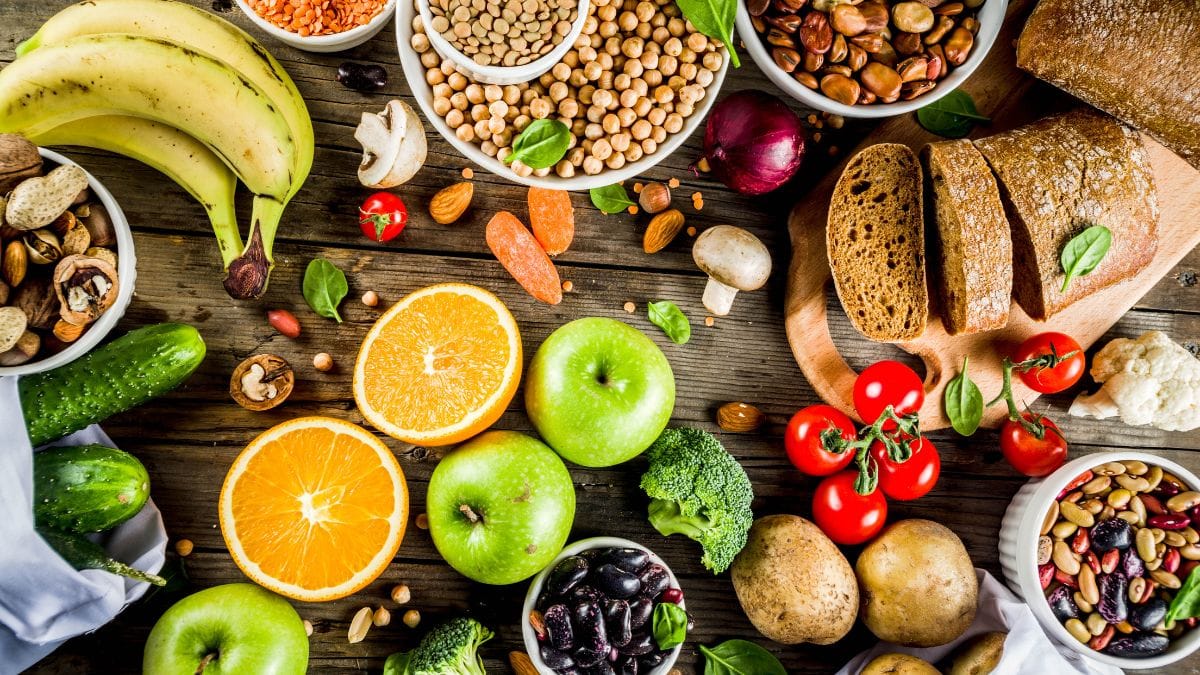● Short Answer: Yes, carbohydrates can cause blood sugar spikes, but the type, amount, and timing determine the severity.
Introduction
Picture this: you finish a plate of white rice and within 30 minutes, you feel drowsy and sluggish.
You might be wondering if those carbohydrates just sent your blood sugar on a roller coaster ride.
Understanding how different carbs affect your blood glucose levels isn’t just academic curiosity—it’s the key to maintaining steady energy, preventing diabetes, and optimizing your daily performance.
What Makes Carbohydrates Spike Blood Sugar?
When you eat carbohydrates, your digestive system breaks them down into glucose molecules that enter your bloodstream.
Simple carbohydrates like white sugar, honey, and refined flour digest rapidly, causing a sharp increase in blood glucose within 15-30 minutes.
Complex carbohydrates with fiber, like oats and quinoa, release glucose more gradually because fiber slows down digestion.
The glycemic index measures how quickly foods raise blood sugar on a scale of 0-100, with pure glucose scoring 100.
Foods scoring above 70 are considered high-glycemic and likely to cause significant spikes, while those below 55 typically produce gentler rises.
✪ Pro Tip: Choose carbs with a glycemic index below 55 to minimize blood sugar spikes.
Which Carbohydrates Create the Biggest Spikes?
White bread, instant rice, and sugary cereals top the list of blood sugar spiking culprits with glycemic indexes above 80.
Processed foods like crackers, pretzels, and white pasta digest so quickly that they can raise blood glucose levels by 50-100 mg/dL within an hour.
Surprisingly, some seemingly healthy foods like watermelon, dates, and instant oatmeal also cause rapid glucose elevation due to their high glycemic nature.
In my opinion, the worst offenders are liquid carbohydrates like fruit juices and sodas because they bypass chewing and enter your system almost instantly.
Even natural fruit juices can spike blood sugar faster than eating whole fruits because the fiber has been removed during processing.
✪ Fun Fact: A glass of orange juice can raise blood sugar faster than eating a candy bar.
How Can You Minimize Blood Sugar Spikes From Carbs?
Eating protein or healthy fats before carbohydrates can reduce blood sugar spikes by 20-30% through slower gastric emptying.
Start your meal with a handful of nuts, a piece of cheese, or some avocado before touching any starchy foods.
Portion control matters tremendously—limiting carbohydrate servings to one-quarter of your plate prevents overwhelming your glucose response system.
Adding vinegar to your meal can lower post-meal blood sugar by up to 20% because acetic acid interferes with carbohydrate absorption.
Taking a 10-15 minute walk after eating helps your muscles absorb glucose more efficiently, reducing the spike duration and intensity.
✪ Pro Tip: Add 1-2 tablespoons of apple cider vinegar to water before carb-heavy meals to blunt glucose spikes.
When Do Carbohydrate-Induced Spikes Become Dangerous?
Blood sugar levels above 180 mg/dL two hours after eating indicate glucose intolerance and potential diabetes risk.
Frequent spikes above 200 mg/dL can damage blood vessels, nerves, and organs over time through a process called glycation.
People with prediabetes or metabolic syndrome experience more severe spikes from the same carbohydrate amounts compared to metabolically healthy individuals.
In my opinion, anyone experiencing fatigue, brain fog, or intense cravings after carb-heavy meals should monitor their blood glucose response.
Continuous glucose monitors or simple fingerstick tests can reveal whether your carbohydrate choices are problematic for your unique metabolism.
✪ Note: Blood sugar above 180 mg/dL two hours post-meal warrants medical evaluation.
Are All Blood Sugar Spikes From Carbs Bad?
Moderate blood sugar rises after eating carbohydrates are completely normal and necessary for proper cellular function.
Athletes and highly active individuals can handle larger carbohydrate loads without problematic spikes because their muscles rapidly consume the glucose.
The timing of carbohydrate consumption matters—eating them post-workout when muscles are glucose-depleted minimizes blood sugar elevation.
Problems arise when sedentary individuals consume high-glycemic carbs repeatedly throughout the day, creating chronic glucose elevation.
Focus on the pattern rather than individual spikes—occasional moderate rises are acceptable, but frequent dramatic swings indicate dietary adjustments are needed.
✪ Fun Fact: Your muscles can absorb glucose without insulin for up to 2 hours after intense exercise.
Wrapping Up
Carbohydrates absolutely can spike blood sugar, but smart choices about type, timing, and combinations give you complete control over your glucose response.
Ready to optimize your carb strategy for stable blood sugar—what’s your biggest challenge with managing post-meal glucose levels?
References
At NutritionCrown, we use quality and credible sources to ensure our content is accurate and trustworthy. Below are the sources referenced in creating this article:
- Harvard T.H. Chan School of Public Health: Carbohydrates and Blood Sugar
- PMC: Glycemic Index and Glycemic Load
- PMC: Food Order and Glucose Response
- Joslin Diabetes Center: Carbs, Protein, and Fats
- American Diabetes Association: Understanding Carbs





